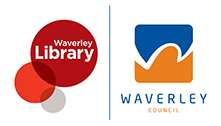Naches
Expressing joy, love and familial pride
What is naches?
Naches is a Yiddish word that is not easily translated and is very hard to define. In fact, it is one of the most precious emotions we have. Pride? A warm, glowing feeling? A feeling of satisfaction, of joy?
The Yiddish dictionary says it's either a pleasure, or gaining satisfaction, the proud enjoyment of something or to derive pleasure from something.
It can mean different things to different people. Naches is generally referred to as "love" or "joy".
Typically naches refers to the pride or joy that a child brings a parent, but can also be seen as success in learning and giving back to the community (the joy of helping someone else).
Feelings of naches also comes from a feeling of gratefulness for arriving in a country which promotes equality and freedom of expression.
“The word naches has significance for all Jews. It's a Yiddish word. Naches loses in the translation. I think the best way to describe it is joy and pride. What is happening usually in your family, we usually apply it to our children.”
Miriam Guttman-Jones, migrated from Israel in 1955
“Naches is something that's not easy. It's not always easy and not everybody's blessed with it, but I have one son who is, always since the day he was born, he's been [my] life and now he has two daughters which are marvellous. I never thought I would have grandchildren.“
Ruth Leiser, migrated from Poland in 1951
Naches is giving back to the community
“I was brought up in a home that was a giving home, that [believed in] helping others. The word tzedakah (charity) means a lot, that you're not only focusing on yourself but beyond that. You live in a community, you don't live alone. You give of yourself, you help others. I have a lot of naches.”
Dalia Ayalon-Sinclair, migrated from Israel in 1973
“I desperately want to pass onto my children that sense of the need that those of us who are comfortably off have to donate our time and donate our money to help other people.
It doesn't have to be people within our community, it can be all sorts of things. That sense of charity, in the English word, is something that I think is very important to Jews, and most Jews are, I think, very charitable, both financially and in terms of their own time that they give as volunteers. I want to extract these meanings out of Judaism and pass those on as best I can.”
Susan Bures AM, migrated from England in 1948
“Already at quite an early stage, I decided that I really wanted to give back something to this country. I thought Australia was just absolutely fantastic and it's given beautiful opportunities to myself, to my parents.”
Andrew Havas, migrated from Hungary in 1957
Naches is family
Everyone’s naches is different but for the most part it refers to the family and friends around them.
“The word naches means to me ... I hope I'm not wrong, it's luck. I'm lucky. Luck. Mesal in Arabic, Baghdadi Arabic. Mesal, luck. You've got naches, good health, you see your children grow up. You see your grandchildren. You witness happy occasions, that's naches. Isn't that naches?"
Eleanor Saul, migrated from Singapore in 1959
“Naches really would, for me, be something that's family orientated. When you see an offspring or a spouse or even maybe the parents, but naches is mainly where a parent sees a child doing something that gives such great pleasure. It gives a parent an inner joy to know that this pleasure has given the parent something that you can't buy. To me naches is something that has got to do with children and grandchildren and the pleasure that they give you in the way that they behave or the way they do things and the way they behave to you.”
Velvel Lederman, parents migrated from Poland in 1949
Naches is learning
“One would define naches as deriving satisfaction, gratification from those in whom one has imparted some learning, some lessons, some education, some experiences. Clearly, the people for whom that would apply to first and foremost would be one's loved ones.
Vic Alhadeff, migrated from South Africa in 1986
“The Jews have always been a people that have valued hard work and have valued education probably above all else. Education has always been at the core of Jewish life.... That kind of spirit of learning and education has, I think, contributed a great deal to the city, to this area, to the country as a whole.”




















